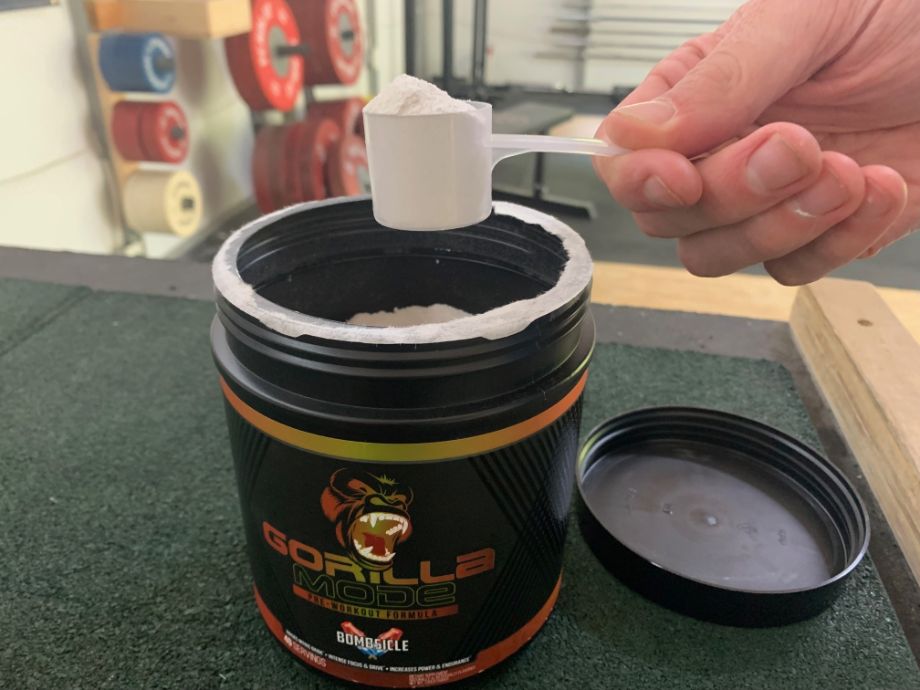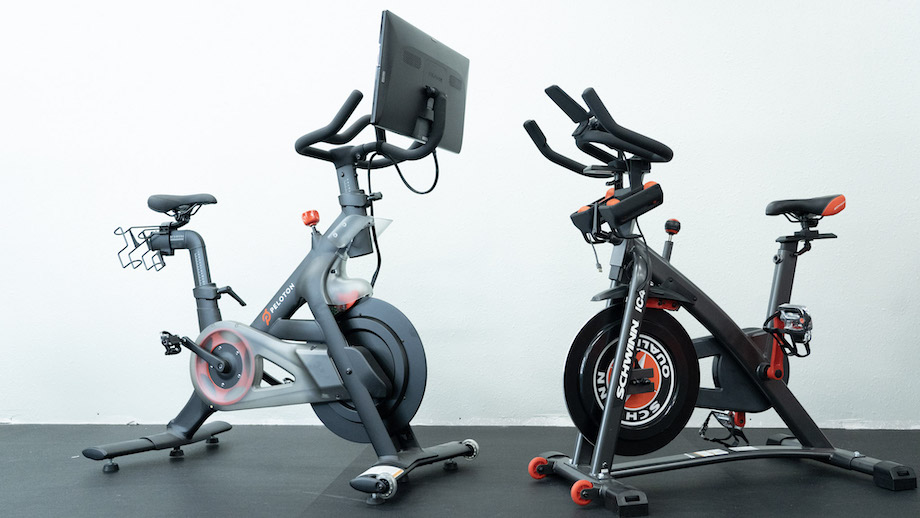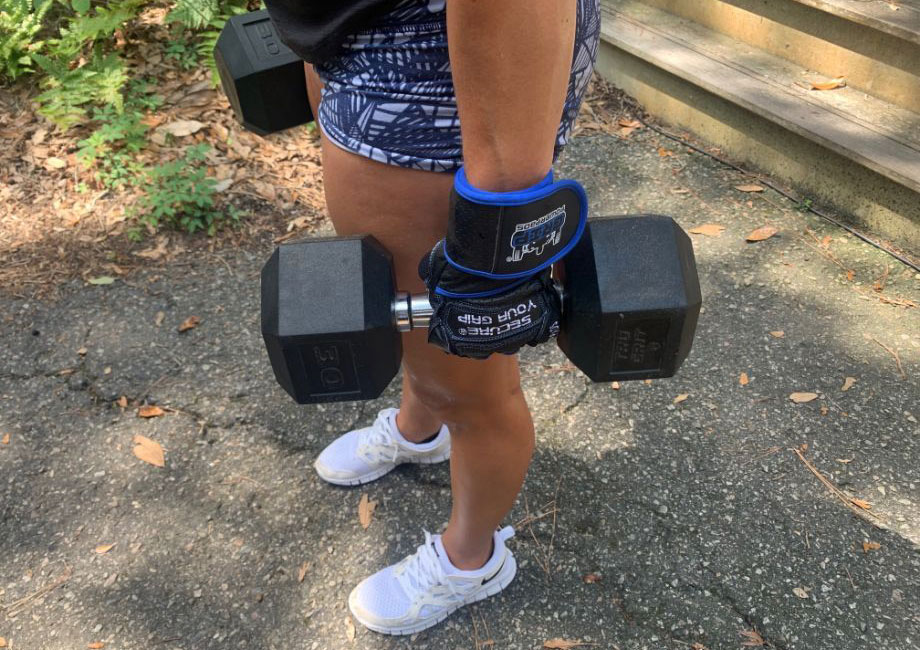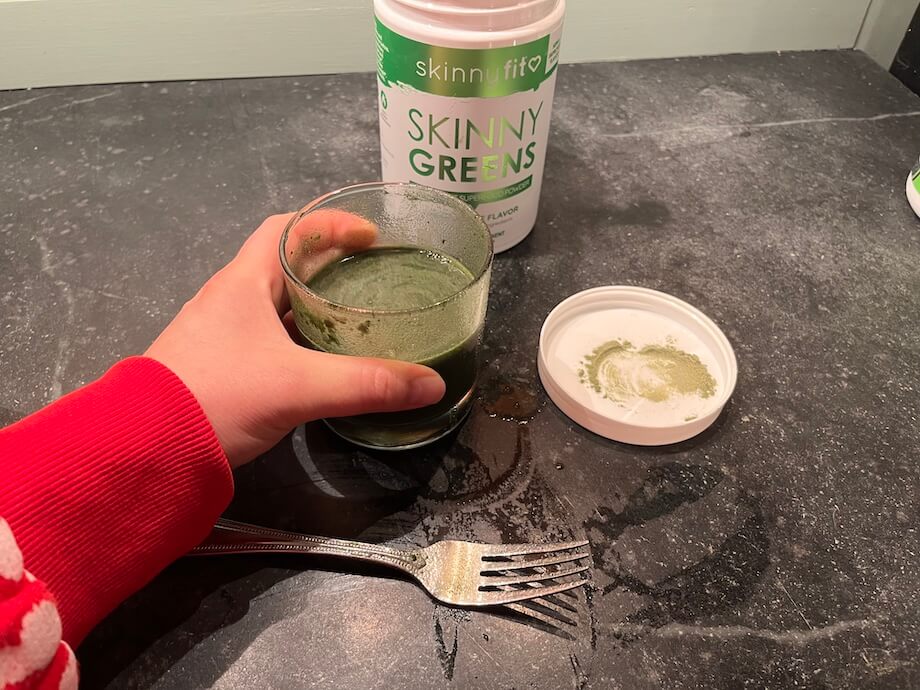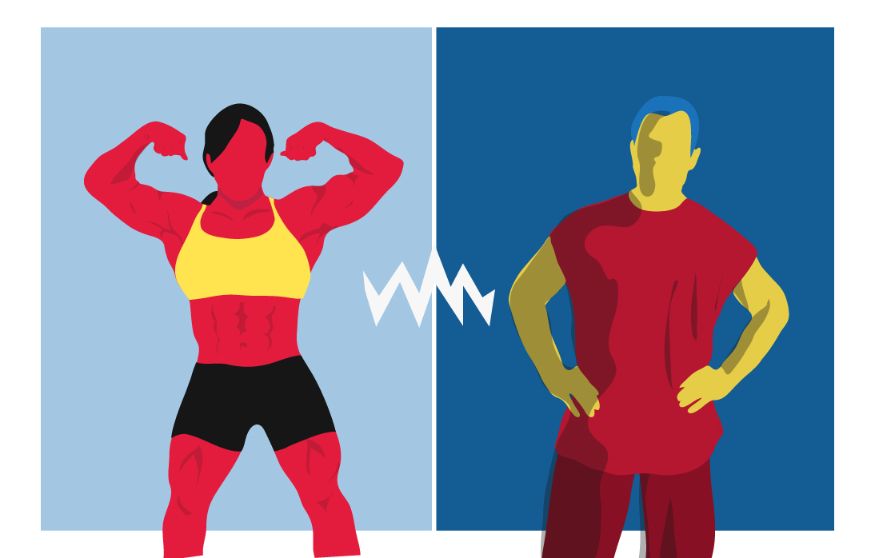So, it happened. You got out of work early and decided to rush straight to the gym to crush your workout and take advantage of that rare slice of spare time. But then you discover you didn’t pack your container of pre-workout powder in your gym bag. It’s about now that you’re likely asking yourself, “Is pre-workout necessary?”
In this article, I—a registered sports dietitian—will discuss pre-workout and its role in your fitness goals and wellness routine. What are the benefits of pre-workout? Are the potential pre-workout side effects even worth the risk? And, if pre-workout isn’t necessary, what are the alternatives?
Let’s get into it!
Medical disclaimer: This article is intended for educational and informational purposes only. It is not intended as a substitute for medical advice. For health advice, contact a licensed healthcare provider.
Short Answer: Is Pre-Workout Necessary?
No, pre-workout isn’t necessary. How did bodybuilders back in the day ever get huge without pre-workout otherwise? While having a huge pump and more mental focus is nice, you can get similar effects through a proper diet. A balanced diet is great for your overall wellness, too.
You don’t need to take BCAAs when branched-chain amino acids like leucine are prevalent in high-quality protein sources, and you don’t need to take 12 different stimulants when carbohydrates exist. It’s that simple.
RELATED: Best Pre-Workout Food
What is Pre-Workout?
Pre-workout supplements are extremely popular among gym-goers, with many insisting they can’t get through their workout without them. There are a few types of pre-workout, but they’re used most often in powder form, which people take before high-intensity exercise, such as heavy weightlifting.
RELATED: Best Pre-Workout for Cardio
Typically, pre-workout formulas contain a blend of ingredients such as nitric oxide boosters to help with better blood flow, compounds to promote weight loss, amino acids to assist with muscle growth, stimulants to boost energy levels, and even nootropics to help improve mental focus.
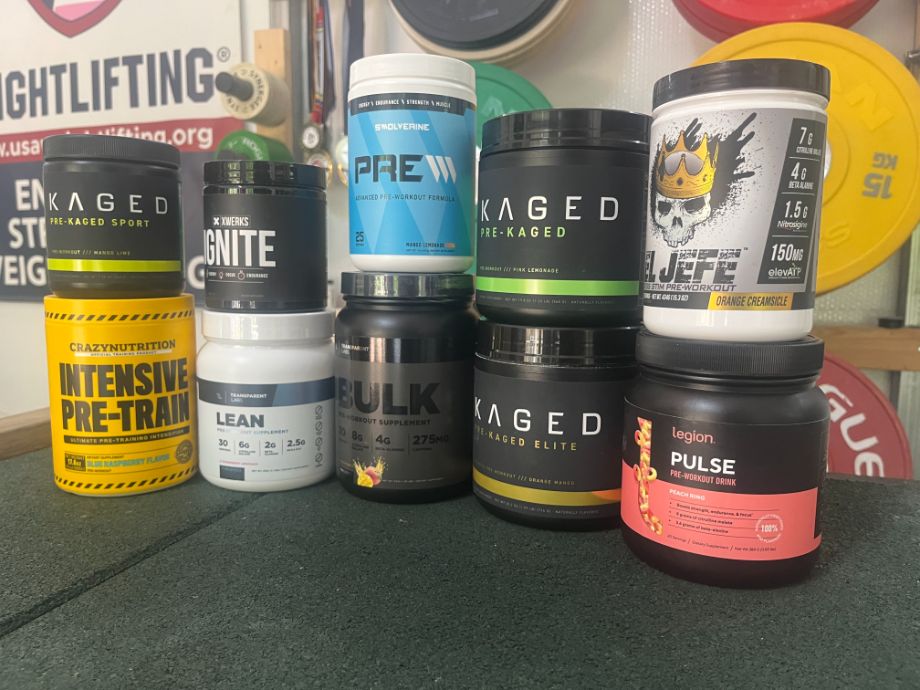
Here are some common ingredients often seen in pre-workout products:
- Caffeine: The benefits of caffeine go beyond your morning cup of coffee before heading to the office; it’s also commonly used to enhance exercise performance. According to the results of a 2012 randomized controlled trial1, caffeine may promote motivation and delay muscle fatigue.
- Creatine: In recent years, creatine has been identified as one of the most popular sports nutrition supplements. Due to its ability to manipulate energy production via ATP, it’s often cited for its ability to help boost gains in lean muscle mass and enhance muscle endurance and strength2.
- Beta-alanine: There’s a growing trend in supplementation of beta-alanine among powerlifters due to evidence that suggests its ability to increase human growth hormone3 and boost strength during quick, explosive movements.
- Nitric oxide boosters: The two most commonly used nitric oxide boosters in pre-workout powder are arginine and l-citrulline. These compounds cause blood vessels to dilate, thereby increasing the blood flow (and oxygen) to your muscles4. Not only can this help reduce early muscle fatigue, but it can also help give your muscles a nice-looking pump.
- Branched-chain amino acids: Some research has indicated5 that branched-chain amino acids (or BCAAS) and other essential amino acids can benefit muscle growth, which is why you’ll often find them in pre-workout products.
RELATED: Best Pre-Workout Ingredients
It’s also common for pre-workout supplements to contain B vitamins as it’s widely believed they provide an energy boost. That said, any registered dietitian will tell you that although B vitamins play a role in energy production metabolism, no clinical evidence has shown they independently boost energy levels in those who are active and not deficient.
How Should You Take Pre-Workout?
Every pre-workout is different in terms of scoop size, number of ingredients, and serving size, so you should read the instructions on the label before taking the supplement. You’re unlikely to have any adverse side effects provided you’re an adult with no health conditions and follow the dosage listed on the label.
It’s important, however, to watch the caffeine levels in your pre-workout. Americans should limit their caffeine consumption to 400 mg per day6, according to the Food and Drug Administration (FDA). Some extreme pre-workouts contain a much higher amount than this. Caffeine consumption over the FDA recommendations can cause high blood pressure, cardiac arrhythmias, heart palpitations, and even heart attacks in extreme cases.

You”l want to adjust your pre-workout caffeine doses with caffeine consumed from other sources, such as energy drinks or green tea. For example, if you have more than one cup of coffee in the morning and take your pre-workout at night, you’ll want to keep track of those caffeine levels to avoid a potential overdose.
RELATED: When To Take Pre-Workout
Benefits of Taking Pre-Workout
To continue the conversation about whether or not pre-workout is necessary, let’s talk about the benefits of pre-workout and what makes them so popular among bodybuilders and casual gym-goers alike.
May Help Support Performance During High-Intensity Exercise
A few pre-workout compounds, like nitric oxide boosters, may help enhance your athletic performance by increasing blood flow and power output.
Pre-workout users who feel like they’ve reached their peak in muscle strength if they’re already well-trained, often turn to pre-workout supplements to help them squeeze out just a few more reps during high-intensity exercise.
May Help Provide Better Muscle Pump
The dilation of blood vessels from compounds like arginine and water retention caused by ingredients like creatine can create what’s commonly referred to as a “muscle pump.” In the fitness world (especially among bodybuilders), this is a highly sought-after side effect of pre-workout in which your muscles look significantly bigger after a workout.
RELATED: Best Pump Pre-Workout
Though you can achieve a muscle pump through intense workouts alone, some pre-workout formulas can make the pump even more profound. Be wary, though. Scientific research has shown7, despite popular belief, a bigger pump doesn’t necessarily translate into more muscle mass. It’s mainly an aesthetic bonus.
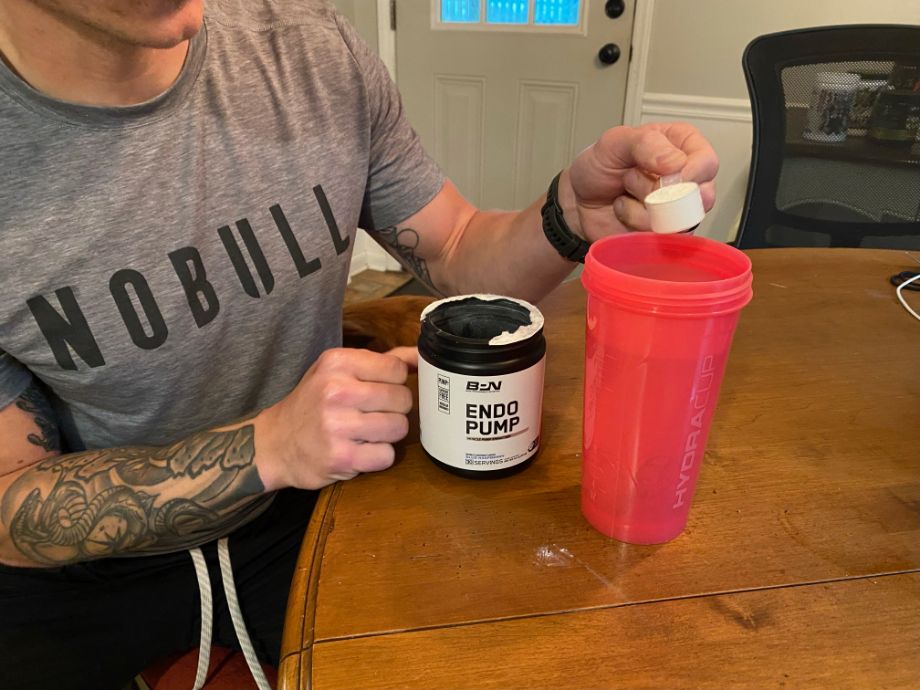
May Help Boost Energy Levels
Because pre-workout formulas usually contain stimulants, the most common reason for taking the dietary supplement is to get an energy boost for high-intensity exercise, especially if you exercise very early in the morning.
RELATED: Pre-Workout Vs. Energy Drink
May Help Improve Mental Focus
I talked about athletic performance and aesthetic fitness goals, but I’ll cover how pre-workouts may affect the nervous system. It’s becoming more and more prevalent that pre-workout contains nootropics, which are a group of dietary supplements that support brain health and mental focus.
Ingredients like l-theanine have been shown to help improve mental focus and cognitive function during intense workouts, especially when paired with caffeine8, another nootropic.
These ingredients make pre-workout supplements very attractive to people who might scroll on their phones a bit too long between sets or just have so much on their minds they find it difficult to concentrate on their workout.
Potential Side Effects of Pre-Workout
As pre-workout supplements often contain a cocktail of common ingredients that affect the nervous system, blood pressure, and other systems of the body, it’s no surprise that they carry a set of risks. If you’re trying pre-workout for the first time, you should be especially vigilant of what brand you choose and the potential pre-workout side effects.
Bloating and Weight Gain
Water retention can be a side effect of pre-workouts containing creatine, especially when new to this supplement. Consequently, creatine causes bloating and rapid, sudden weight gain due to pulling water into muscle cells, being a part of creatine’s function9.
However, this water retention will subside eventually as your body adapts to the dietary supplement, and studies have repeatedly demonstrated that creatine is very safe to use.
GI Distress
You may experience stomach upset or cramps if it’s your first time taking pre-workout or you take multiple doses. There is an increased risk of negative GI symptoms if the pre-workout contains artificial sweeteners such as sugar alcohols. Pre-workout that hasn’t been diluted with enough liquid can also lead to diarrhea10.
This is another reason—among many—you probably shouldn’t dry scoop your pre-workout powder, no matter how much social media suggests it.
Jitteriness and Tingling
Even the most seasoned athletes might feel some jitters after taking the equivalent of multiple cups of coffee at once. A common side effect of beta-alanine—aka paresthesia—can also cause a “pins-and-needles” sensation in the skin. Though this effect is harmless, some people find it unpleasant and distracting from their workout.

So, if you want to avoid these effects, check out our picks for the best stim-free pre-workout or the best pre-workout without beta-alanine.
Headaches
Citrulline and arginine can relax blood vessels and widen them, thereby improving oxygen supply to muscles. The nervous system and muscles can, however, also be affected by this dilation.
Because blood also flows to the brain, the actions of nitric oxide boosters might also increase the rate of blood flow and blood pressure in the brain, and some people have reported headaches11 as a result. Depending on the individual’s sensitivity and the dosage, a higher dose of caffeine can also cause headaches.
RELATED: Pre-Workout Nausea
What Are Some Pre-Workout Alternatives?
I’ve established some benefits of taking pre-workout supplements, but that doesn’t mean they’re necessary to get your most optimal exercise performance. Whether you’re nervous about the potential side effects or prefer to boost your performance more naturally, here are a few alternatives to pre-workout supplements.
Simple Carbohydrates
A sports nutritionist will be quick to tell you simple carbs are the number one natural alternative to a pre-workout. As a sports registered dietitian, I couldn’t count the number of times college and even professional athletes have come to me asking for recommendations for the best pre-workout. My response was always, “Why don’t you just eat simple carbs?”
RELATED: Best Carbs for Bodybuilding
Though simple carbohydrates can be viewed as bad for health and wellness, they have a lot of utility in the active population. This is because refined carbs like white rice, white bread, fruit juice, and even white sugar are shown to boost athletic performance before a workout12. They also help with glycogen repletion post-workout.
These types of carbs are low in fiber, which means they digest very quickly and raise blood glucose rapidly. Thus, when consumed right before intense workouts, they provide a boost of energy. If you consume low-fiber carbs and then just sit on your couch, this is why you experience a sugar rush and a subsequent crash that makes you want to nap.
Now, if you’re restricting your calories or are on a low-carb diet like keto, this wouldn’t be an ideal alternative for you. This situation is where a pre-workout would be a better fit.
RELATED: What Is the Keto Diet?
Beet Juice
Beets are a wonderful food to include in a balanced diet mainly due to their high content of nitrates, which has been shown to help improve heart health13. However, beets have also been a worst-kept secret of endurance athletes for years. You can even find photos of Usain Bolt eating beet pancakes while he gets treatments before his races.
A meta-analysis of the effects of the nitrates in beets found that athletes took significantly longer to experience muscle fatigue, and endurance athletes could cover longer distances14. Thus, beetroot juice is a suitable alternative to the nitric oxide boosters often found in pre-workout.
Fresh or Dried Fruit
Fruit isn’t considered a simple carbohydrate as it notoriously contains fiber. However, fruit also contains high amounts of natural sugar. For those who bristled earlier at the idea of consuming products with added sugar before a workout, this is a more natural option.

RELATED: Can You Eat a Banana for Pre-Workout?
Whole fruits are great because they provide sugar to raise blood glucose levels, nutrients, antioxidants, and fluids to assist with hydration.
A nutritionist may also recommend dried fruit to those bulking as they provide the same amount of nutrients and fiber as the fresh version, but with more calories. For example, it’s easier to eat 50 raisins before a workout than 50 grapes. Either way, both can function as a carb source to help you maintain energy before your workout.
RELATED: Best Fruit for Muscle Building
Coffee or Green Tea
Natural sources of caffeine are much more common pre-workout alternatives than many of us think. Coffee pre-workout is one of the simplest ways to level up your focus and energy before heading to the gym due to the natural source of caffeine. Green tea also contains caffeine but in lower amounts.
That said, this alternative may be a better fit for those working out in the evening or those aiming for weight loss because studies show that green tea may be effective at helping active individuals burn more fat15.
Is Pre-Workout Necessary? Final Thoughts
I’m not arguing for or against the use of pre-workout supplements. They can really go a long way toward taking your workouts to the next level. However, don’t let social media or gym bros make you feel like you’re doing something wrong if you don’t want to take it.
There are plenty of alternatives to taking pre-workout that can give you what you’re looking for from the supplements, depending on your fitness goals. Furthermore, those with certain health conditions shouldn’t take pre-workout, so knowing how to have a balanced diet that’s properly timed is the next best thing.
Is Pre-Workout Necessary? FAQs
Is it OK to work out without pre-workout?
Yes, pre-workout is not mandatory or even necessary for you to perform your workout.
Do you really need pre and post-workout?
While you don’t necessarily need post-workout and pre-workout supplements, it is a good idea to have a diet plan that includes pre-workout fuel and post-workout recovery to prevent muscle soreness and catabolism.
RELATED: Best Muscle Recovery Supplements
What can I drink instead of pre-workout?
Instead of pre-workout, you can drink coffee, tea, or beverages with carbs and nutrients, such as fruit juice or chocolate milk.
These statements have not been evaluated by the Food and Drug Administration. This product is not intended to diagnose, treat, cure, or prevent any diseases.
References
- Duncan MJ, Smith M, Cook K, James RS. The acute effect of a caffeine-containing energy drink on mood state, readiness to invest effort, and resistance exercise to failure. J Strength Cond Res. 2012;26(10):2858-2865. doi:10.1519/JSC.0b013e318241e124
- Wu SH, Chen KL, Hsu C, et al. Creatine Supplementation for Muscle Growth: A Scoping Review of Randomized Clinical Trials from 2012 to 2021. Nutrients. 2022;14(6):1255. Published 2022 Mar 16. doi:10.3390/nu14061255
- Hoffman J, Ratamess NA, Ross R, et al. Beta-alanine and the hormonal response to exercise. Int J Sports Med. 2008;29(12):952-958. doi:10.1055/s-2008-1038678
- Kiani AK, Bonetti G, Medori MC, et al. Dietary supplements for improving nitric-oxide synthesis. J Prev Med Hyg. 2022;63(2 Suppl 3):E239-E245. Published 2022 Oct 17. doi:10.15167/2421-4248/jpmh2022.63.2S3.2766
- Fujita S, Dreyer HC, Drummond MJ, et al. Nutrient signalling in the regulation of human muscle protein synthesis. J Physiol. 2007;582(Pt 2):813-823. doi:10.1113/jphysiol.2007.134593
- FDA. Spilling the Beans: How Much Caffeine is Too Much? U.S. Food and Drug Administration. Published December 12, 2018.
- Schoenfeld BJ, Contreras B. The Muscle Pump: Potential Mechanisms and Applications for Enhancing Hypertrophic Adaptations. Strength & Conditioning Journal. 2014;36(3):21-25. doi:https://doi.org/10.1097/SSC.0000000000000021
- Owen GN, Parnell H, De Bruin EA, Rycroft JA. The combined effects of L-theanine and caffeine on cognitive performance and mood. Nutr Neurosci. 2008;11(4):193-198. doi:10.1179/147683008X301513
- Kreider RB, Kalman DS, Antonio J, et al. International Society of Sports Nutrition position stand: safety and efficacy of creatine supplementation in exercise, sport, and medicine. J Int Soc Sports Nutr. 2017;14:18. Published 2017 Jun 13. doi:10.1186/s12970-017-0173-z
- Burgers K, Lindberg B, Bevis ZJ. Chronic Diarrhea in Adults: Evaluation and Differential Diagnosis. Am Fam Physician. 2020;101(8):472-480.
- Pradhan AA, Bertels Z, Akerman S. Targeted Nitric Oxide Synthase Inhibitors for Migraine. Neurotherapeutics. 2018;15(2):391-401. doi:10.1007/s13311-018-0614-7
- Peinado AB, Rojo-Tirado MA, Benito PJ. El azúcar y el ejercicio físico: su importancia en los deportistas [Sugar and exercise: its importance in athletes]. Nutr Hosp. 2013;28 Suppl 4:48-56. doi:10.3305/nh.2013.28.sup4.6796
- Ahluwalia A, Gladwin M, Coleman GD, et al. Dietary Nitrate and the Epidemiology of Cardiovascular Disease: Report From a National Heart, Lung, and Blood Institute Workshop. J Am Heart Assoc. 2016;5(7):e003402. Published 2016 Jul 6. doi:10.1161/JAHA.116.003402
- Gao C, Gupta S, Adli T, et al. The effects of dietary nitrate supplementation on endurance exercise performance and cardiorespiratory measures in healthy adults: a systematic review and meta-analysis. J Int Soc Sports Nutr. 2021;18(1):55. Published 2021 Jul 9. doi:10.1186/s12970-021-00450-4
- Venables MC, Hulston CJ, Cox HR, Jeukendrup AE. Green tea extract ingestion, fat oxidation, and glucose tolerance in healthy humans. Am J Clin Nutr. 2008;87(3):778-784. doi:10.1093/ajcn/87.3.778


